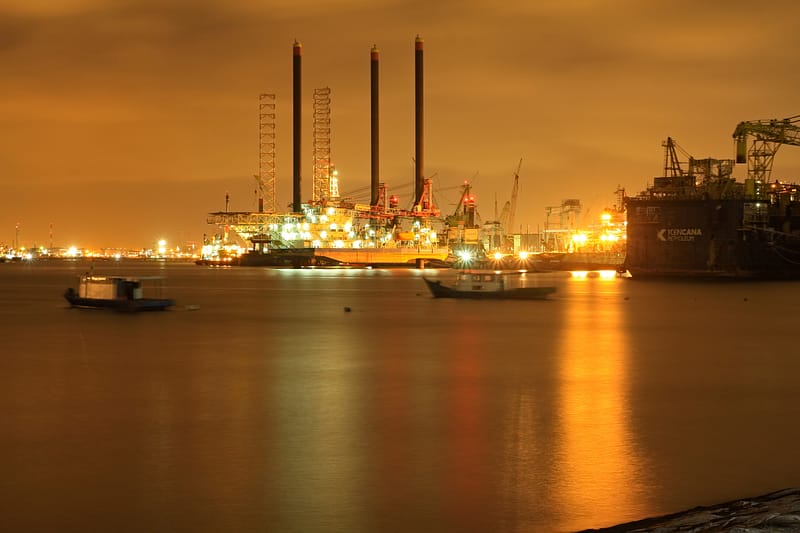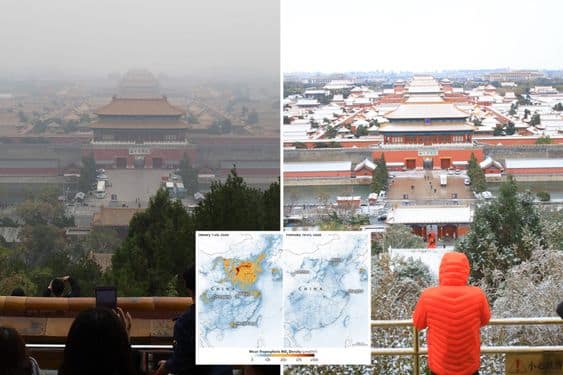As I was reading an article about the increasing reserves of oil in the world and how we are running out of storage space for oil, I got curious.
How is the oil consumption market structured? Is it more B2B or is it more B2C?
Data from 2017 shows that 50% of the consumption of oil is connected to road traffic. And only 7-10% is for air traffic.

#StayHome - Short Term Consequences
So, clearly, with many countries locked down at home and people forced to stay indoor, not commuting to work or anywhere else for that matter, this is resulting in an incredible reduction of oil consumption, which of course means much nicer air to breath for all of us.
Pollution and greenhouse gas emissions have fallen significantly across continents as countries try to contain the spread of the virus. Pollution in New York is reduced by 50%. In China emissions fell 25% at the beginning of the year and coal use fell by 36% compared to the same period in 2019.
According to China’s Ministry of Ecology and Environment, data recorded between January and March 2020 results in an 84% increase in days with good air quality in more than 300 cities across the country.


In Europe, satellite images show Nitrogen Oxide (NO2) emissions fading away over northern Italy and similar images are coming from other parts of Europe, like Spain and the UK, for example.
Only an immediate threat like COVID19 could have led to such a profound impact in such a short time.
In an article from March 8th, 2020, Marshall Burke, Environmental Resource Economist at Stanford University, calculates that these two months of pollution reduction in China only has probably saved about 4,000 kids under 5 and 73,000 adults over 70.
Don’t get me wrong: Nothing in this current crisis looks remotely like success, since, in fact, the long-term negative consequences of the social and economic disruption we are going through will be significant on health and other outcomes.
But I still think it is interesting to obverse how quickly emissions and the related air pollution can decrease when there is a willingness to act.

What Does This Mean For The Climate Change Discussion?
So what do politicians and organisations think of this current situation and how will it impact our efforts against global warming and climate change?
There is at least two sides of the story.
The first is an optimistic view of the world and it highlights the opportunity of increasing collaboration between countries and continents to share more data and build on each others’ knowledge to fight against the pandemic. This outlook reinforces the hope that this practice could be extended beyond COVID-19 and leveraged to address the climate issue as well.
The other side of the story is dominated by the more cynical voices who are not sure at all that the global community will apply learnings from COVID-19’s response to the climate change discussion. In fact, it is plausible to assume that many countries, once the crisis is over, will be mainly focused on restarting their economy, which could come at the expense of the environment.
There is clearly a risk there will be an over-compensation of economic activity when the crisis lifts and normal life resumes. And therefore, all the benefits of the few months of reduced NO2 will be fast forgotten.
But boosting economic growth after the coronavirus lockdown doesn’t have to mean that the green objectives should be sidelined: new ways of producing and storing renewable energy, hydrogen fuel and other green technologies might prove more attractive to private investors and governments than traditional industries like coal mines; my hope is that the coronavirus shutdown will signal a natural shift towards clean-tech and renewables.
And when it comes to individuals and our small but meaningful contribution to the environment: I believe that many of us won’t start travelling for meetings across the globe like nothing had ever happened and, instead, we will rethink our former practices, appreciating the effectiveness of virtual meeting in terns of both time & cost saving (and health benefits!)?
The COVID19 crisis is leading to lower emissions around the world. But these reductions are temporary and, experts say, now is not the time to put green energy research and climate policy on lockdown !
So my question to you is: Can we change how business as usual is run?
GET CHIARA'S FREE DOWNLOAD
7 Easy Tactics to
Effective Meetings
Click the button below to enter your email and I’ll immediately send you the link to get your fee download
